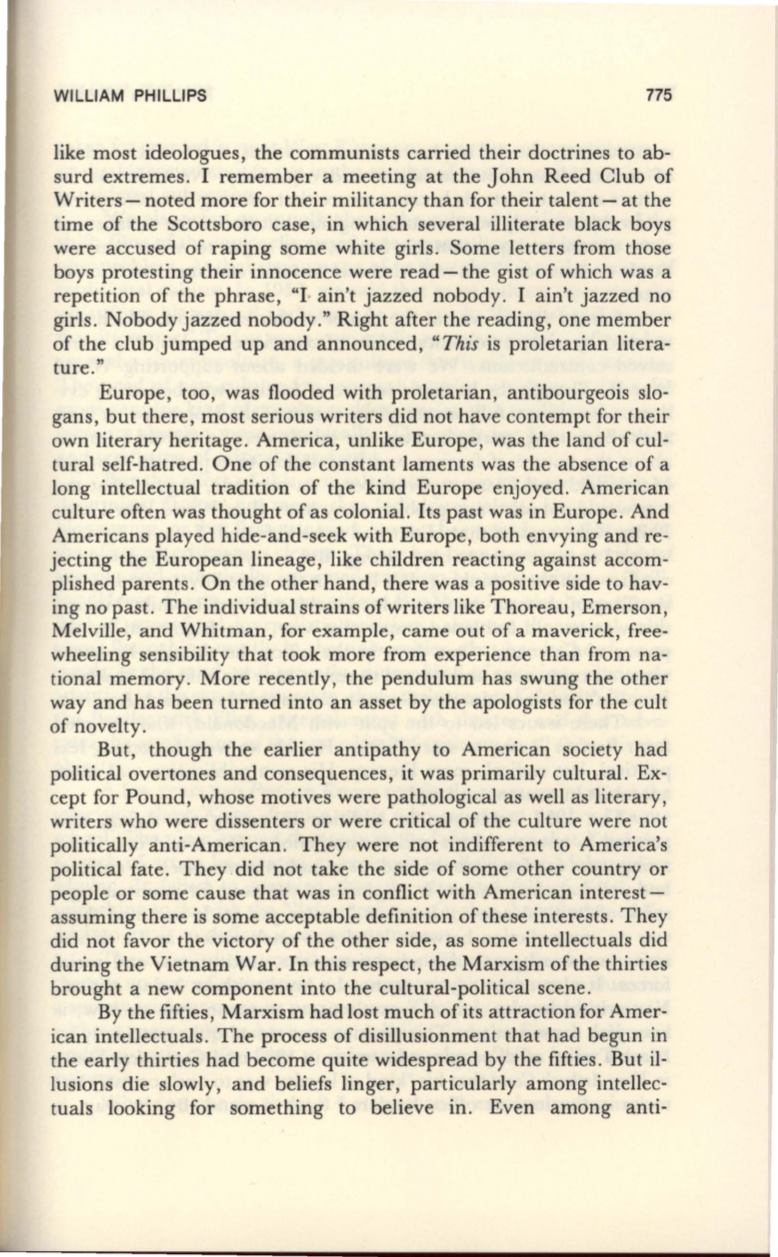
WILLIAM PHILLIPS
775
like most ideologues, the communists carried their doctrines to ab–
surd extremes. I remember a meeting at the John Reed Club of
Writers- noted more for their militancy than for their talent- at the
time of the Scottsboro case, in which several illiterate black boys
were accused of raping some white girls. Some letters from those
boys protesting their innocence were read- the gist of which was a
repetition of the phrase, "I· ain't jazzed nobody. I ain't jazzed no
girls. Nobody jazzed nobody ." Right after the reading, one member
of the club jumped up and announced,
"This
is proletarian litera–
ture."
Europe, too, was flooded with proletarian, antibourgeois slo–
gans, but there, most serious writers did not have contempt for their
own literary heritage. America, unlike Europe, was the land of cul–
tural self-hatred. One of the constant laments was the absence of a
long intellectual tradition of the kind Europe enjoyed. American
culture often was thought of as colonial. Its past was in Europe . And
Americans played hide-and-seek with Europe, both envying andre–
jecting the European lineage, like children reacting against accom–
plished parents. On the other hand, there was a positive side to hav–
ing no past. The individual strains of writers like Thoreau, Emerson,
Melville, and Whitman, for example, came out of a maverick, free–
wheeling sensibility that took more from experience than from na–
tional memory. More recently, the pendulum has swung the other
way and has been turned into an asset by the apologists for the cult
of novelty .
But, though the earlier antipathy to American society had
political overtones and consequences, it was primarily cultural. Ex–
cept for Pound, whose motives were pathological as well as literary,
writers who were dissenters or were critical of the culture were not
politically anti-American. They were not indifferent to America's
political fate. They did not take the side of some other country or
people or some cause that was in conflict with American interest–
assuming there is some acceptable definition of these interests. They
did not favor the victory of the other side, as some intellectuals did
during the Vietnam War. In this respect, the Marxism of the thirties
brought a new component into the cultural-political scene.
By the fifties, Marxism had lost much of its attraction for Amer–
ican intellectuals. The process of disillusionment that had begun in
the early thirties had become quite widespread by the fifties . But il–
lusions die slowly, and beliefs linger, particularly among intellec–
tuals looking for something to believe in . Even among anti-


